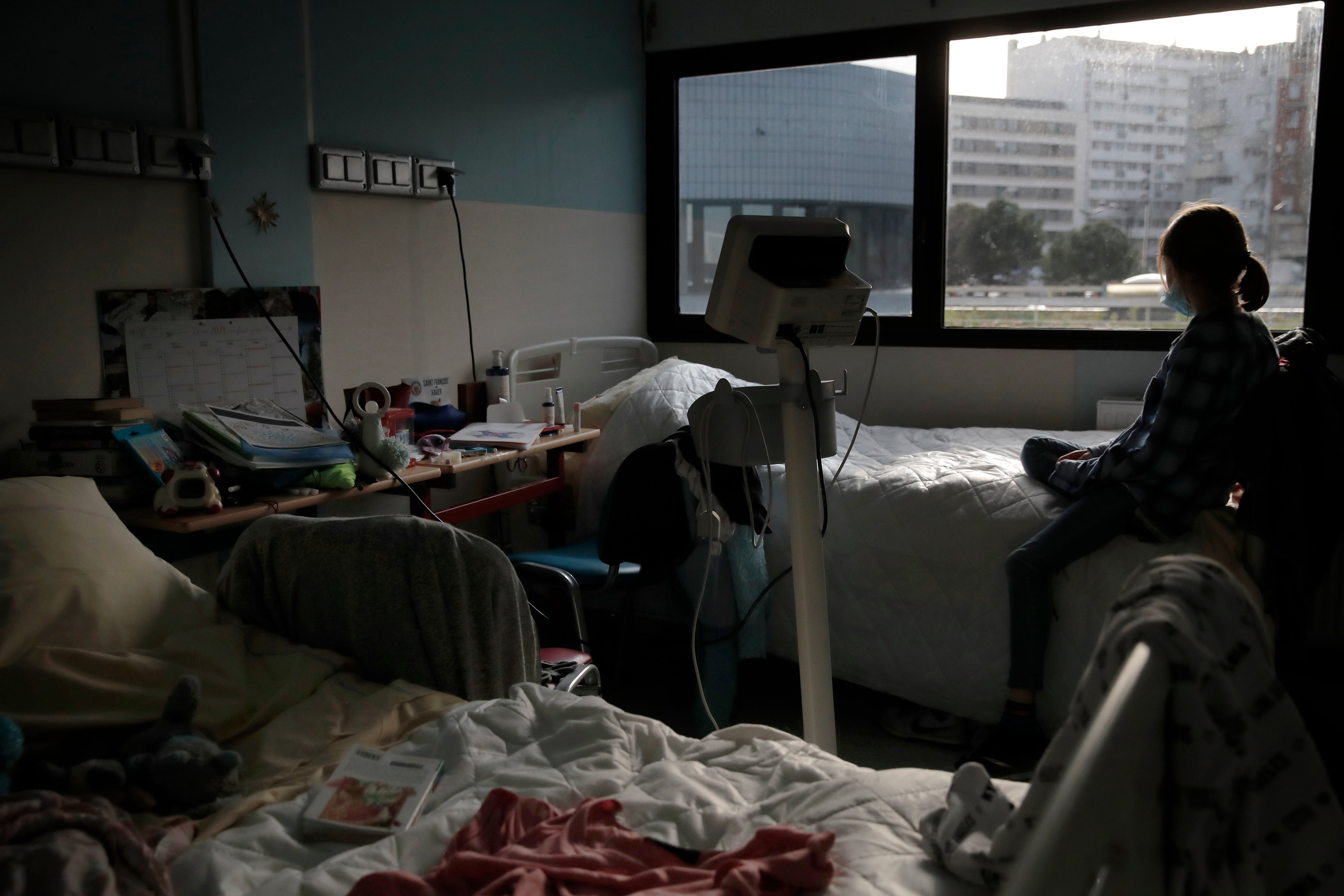UNICEF: Battered by pandemic, kids need mental health help
The U.N.’s child protection agency is urging governments to pour more money and resources into preserving the mental well-being of children and adolescents

Your support helps us to tell the story
From reproductive rights to climate change to Big Tech, The Independent is on the ground when the story is developing. Whether it's investigating the financials of Elon Musk's pro-Trump PAC or producing our latest documentary, 'The A Word', which shines a light on the American women fighting for reproductive rights, we know how important it is to parse out the facts from the messaging.
At such a critical moment in US history, we need reporters on the ground. Your donation allows us to keep sending journalists to speak to both sides of the story.
The Independent is trusted by Americans across the entire political spectrum. And unlike many other quality news outlets, we choose not to lock Americans out of our reporting and analysis with paywalls. We believe quality journalism should be available to everyone, paid for by those who can afford it.
Your support makes all the difference.Governments must pour more money and resources into preserving the mental well-being of children and adolescents, the U.N.'s child protection agency urged in a report Tuesday that sounded alarms about blows to mental health from the COVID-19 pandemic that hit poor and vulnerable children particularly hard.
The United Nations Children’s Fund said its “State of the World’s Children” study is its most comprehensive look so far this century at the mental health of children and adolescents globally. The coronavirus crisis, forcing school closures that upended the lives of children and adolescents, has thrust the issue of their mental well-being to the fore.
UNICEF said it may take years to fully measure the extent of the pandemic's impact on young people's mental health. Psychiatrists quickly saw signs of distress, with children and adolescents seeking help for suicidal thoughts, anxiety, eating disorders and other difficulties as lockdowns and switching to remote learning severed them from friends and routines and as COVID-19 killed parents and grandparents.
“With nationwide lockdowns and pandemic-related movement restrictions, children have spent indelible years of their lives away from family, friends, classrooms, play — key elements of childhood itself,” said UNICEF's executive director, Henrietta Fore.
“The impact is significant, and it is just the tip of the iceberg,” Fore said. “Even before the pandemic, far too many children were burdened under the weight of unaddressed mental health issues. Too little investment is being made by governments to address these critical needs.”
Pediatric psychiatrists say they were already short of resources before the pandemic brought a surge in caseloads. UNICEF said spending on promoting and protecting mental health “is extremely low” yet the needs are pressing. Citing pre-pandemic figures from 2019, UNICEF estimated nearly 46,000 children and adolescents ages 10 to 19 end their own lives every year.
The scale of pandemic-related distress among children and adolescents has jolted some governments into action. France which is hosting a two-day global summit on mental health this week, has offered free therapy sessions for children and young people and pledged to extend that help from next year to everyone with a doctor’s prescription. Elsewhere, counseling hotlines — some newly opened to help people struggling with their mental health during the pandemics — saw surging demand.
UNICEF said multiple worries affect the mental health of children and adolescents, including anxieties over possible illness, lockdowns, school closures and other upheavals in their lives. Lockdowns also fueled behavior problems, and were particularly hard-felt by kids with autism and attention and hyperactivity disorders, UNICEF said.
Remote learning was beyond the reach of hundreds of millions of young people. One in three schoolchildren couldn’t take part because they had no internet access or television, UNICEF said. Children in the poorest families were most affected. It estimated that two out of five children in eastern and southern Africa were still out of school as recently as July.
Even when they haven't been forced to drop out of school and work to help make ends meet, children also are being hit by the pandemic’s destructive repercussions for jobs and economies. UNICEF said the crisis has triggered “a sharp uptick” in numbers of children in poverty, with an additional 142 million children thought to have slipped into poverty last year.
Financial hardship and school closures could also put more girls at risk of being forced into early marriage as child brides, UNICEF warned.
Although children and adolescents have been less likely to die from COVID-19 than older and more vulnerable people, UNICEF cautioned that the pandemic has clouded their long-term future and “upended their lives, and created real concern for their mental health and well-being."
“It will hang over the aspirations and lifetime earnings of a generation whose education has been disrupted,” it said. “The risk is that the aftershocks of this pandemic will chip away at the happiness and well-being of children, adolescents and caregivers for years to come.”
___
Follow all AP stories on the coronavirus pandemic at https://apnews.com/hub/coronavirus-pandemic.